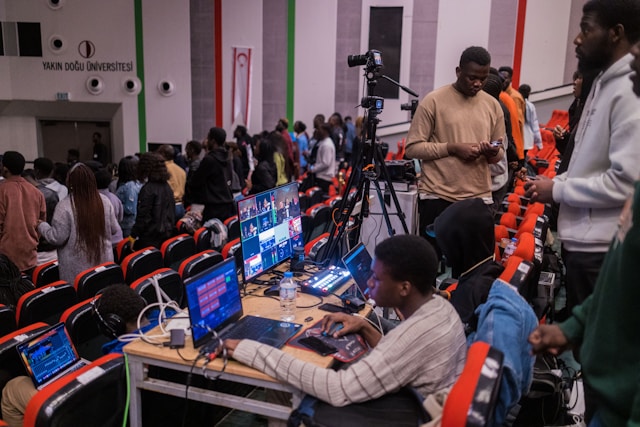JAMB CBT Challenges in Nigeria: What Students and Stakeholders Must Know
When JAMB introduced the Computer-Based Test (CBT) system, the goal was to modernize Nigeria’s examination process—making it faster, more transparent, and less prone to malpractice. However, in recent years, especially in 2024 and 2025, CBT exams have come under serious scrutiny.
From biometric failures to poor network signals and power outages, students across Nigeria have faced frustrating challenges. Many now wonder:
Is Nigeria truly ready for full-scale CBT? And are students suffering unnecessary hardship because of technical failures beyond their control?
This article explores the real challenges facing JAMB CBT in Nigeria and what can be done to fix them.
Poor Technical Infrastructure
One of the biggest problems with CBT in Nigeria is the unreliable infrastructure.
- Unstable electricity: Many CBT centers rely on generators that can fail mid-exam.
- Weak internet connectivity: Slow or lost connections cause exam pages to freeze or crash.
- Old or faulty computers: Some systems lag or shut down during exams, wasting students’ time.
During the 2025 UTME, entire centers were shut down after repeated system failures.
➡️ Read more on Nigeria’s digital readiness for exams.
Biometric and Login Failures
JAMB CBT uses fingerprint verification to ensure exam integrity. However, this system isn’t always reliable.
- Some students were locked out after multiple failed scans.
- Cases of mismatch with JAMB registration data caused delays or disqualification.
- Staff often lacked the training to fix biometric issues on time.
These failures lead to frustration and panic even before exams begin.
Multiple Shifts and Exam Confusion
To accommodate large numbers of candidates, JAMB splits exams into different shifts. But this has created its own set of problems:
- Last-minute changes in exam centers or shift times.
- Students missing exams due to communication breakdowns.
- Overcrowding and poor coordination at centers.
In some areas, like parts of Kwara, Ogun, and Delta states, candidates received conflicting information about their exam times.
CBT Centers Operating Below Standard
JAMB licenses CBT centers across Nigeria, but not all are properly equipped.
- Some operate with outdated systems and poor ventilation.
- Others are located in noisy or unsecured environments.
- Many centers cram too many candidates into small rooms.
Psychological Stress on Students
Unlike pen-and-paper exams, CBT can be unfamiliar and stressful for many students, especially in rural areas:
- Students with little or no computer experience struggle to navigate exam interfaces.
- Lack of typing skills affects performance in speed-based exams.
- Constant fear of technical issues increases anxiety.
Some candidates even burst into tears mid-exam, fearing they’d fail if the system crashed.
Disruption of Exam Flow
In a traditional exam, a student simply picks up a question paper and writes. But CBT carries additional risks:
- Power cuts mid-exam may erase unsaved progress.
- Glitches sometimes change question numbers or options.
- Exams may auto-submit if time lapses during a system crash.
This unfairly penalizes students who are not at fault.
➡️ Read about CBT vs. pen and paper in Nigerian exams.
Security Concerns and Exam Leaks
Although CBT was introduced to fight exam malpractice, it hasn’t been foolproof.
- There have been reports of question leaks.
- Some CBT center staff allegedly collaborate with candidates.
- Social media “expo” channels still exist.
JAMB must continue upgrading digital security to stay ahead of fraudsters.
Inadequate Preparation Time
Many students complain that JAMB’s mock CBT tests are limited in access or unrealistic:
- Mocks don’t fully reflect real CBT conditions.
- Schools don’t integrate enough digital literacy into their curriculum.
- Poor students can’t afford extra coaching or computer training.
Poor Feedback and Complaint Resolution
When students experience issues during CBT exams, they expect quick solutions. Sadly, JAMB’s complaint channels are often overwhelmed:
- Emails go unanswered for weeks.
- Help desks are overloaded during peak periods.
- Reschedules take too long or never happen.
A fair system must include a fast and transparent resolution process.
JAMB’s Response So Far
To be fair, JAMB has tried to fix some issues:
- Increasing mock exam opportunities.
- Shutting down underperforming CBT centers.
- Deploying automated backup servers to reduce disruptions.
But much more work remains to ensure consistent, fair exams.
Suggested Solutions
- Massive investment in ICT infrastructure.
- Digital training for students from JS1 upwards.
- Improved communication channels for last-minute changes.
- Real-time monitoring of CBT centers nationwide.
- Upgraded biometric and security systems.
Conclusion
JAMB’s vision for CBT is a good one. But unless Nigeria addresses infrastructure, training, and fairness, the system risks becoming a nightmare for students rather than an opportunity.
CBT in Nigeria is not a sprint—it’s a marathon. Careful planning and investment will ensure every student gets a fair chance.


[…] to CBT? Read our guide onCommon CBT challenges in Nigeria and what students should know […]
[…] Challenges of JAMB CBT in Nigeria […]
[…] Challenges of JAMB CBT in Nigeria […]
[…] You can learn more about polytechnic admissions in one of our internal guides:Challenges facing JAMB CBT system in Nigeria […]